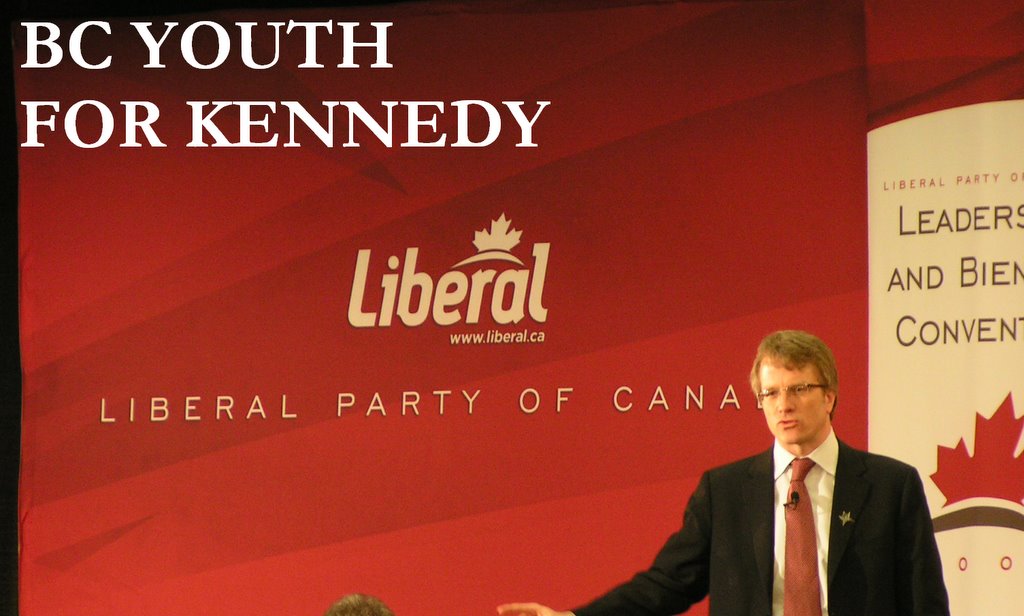"CANADA AS A CLEAN ENERGY SUPERPOWER"
Hot off the presses, here is a very significant part of Gerard Kennedy's amazingly comprehensive plan and platform for achieving environmental sustainability, especially focusing on energy. As young people, few issues could be as important and as urgent as this, and Gerard's approach looks to be very, very solid. The plan is as follows, preceded by an introduction by the Hon. Charles Caccia.
- - - - - - -

Release Date: June 16, 2006
During the months of the Liberal leadership campaign, Gerard Kennedy will bring forward his ideas for doing politics differently. Gerard believes that a good leader sets direction but also allows for broad discussion and input. The policy ideas being put forward in the form of discussion papers depend on the participation of the campaign team, liberal membership and public at large.
Over the next 3 weeks, you can have your say! Provide feedback on the discussion topics by visiting the Policy Dialogue section of the website at www.gerardkennedy.ca
When the 3-week feedback period has expired, we will repost the discussion papers, complete with the new views presented by participants.
Everything starts with a purpose. Here, we're setting the table for openness and inclusion with the hope that you'll join!
An introduction from former Minister of the Environment, Charles Caccia
When we look around us, we cannot help being struck by the beauty of nature: be it trees, flowers, insects, birds, fish, woods, and all sorts of living beings. At the same time we are becoming increasingly aware of the fact that our activities are having a large impact on what surrounds us. We notice that certain species are becoming endangered, if not extinct; that weather patterns are changing; that on hot days the smog makes it hard to breathe; that water is contaminated in certain regions, that chemicals are leaching into soil, that forests are over cut.
We are told it is inevitable to have a conflict between jobs and the environment, that pollution is part of economic growth, that the economy is more important than the environment, and that given a choice, the economy has to be given precedence over the environment. Of course, we as Liberals don’t subscribe to these beliefs; we leave them to the Conservatives. As Liberals, we have built over time a terrific environmental record: from the Great Lakes Water Quality Agreement to the reductions of acid rain; from the creation of Environment Canada as a government department to the ratification of the Kyoto protocol. From removal of lead from gasoline to legislation on the protection of endangered species.
These are tangible achievements that make us proud as Liberals. And now we have the task to build further on these foundations. We can prove to Canadians that jobs and the environment can go hand in hand. We can prove that economic goals are better achieved in the long run by integrating the economy with the environment. And we can lead Canadians on the international scene where, until recently, we were respected and admired for our fine environmental record.
To this end we need a leader with a strong commitment to the environment and to environmentally sustainable development; a leader who will not only talk but also walk the talk; a leader who sees beyond the horizon of the next election; a leader who can make difficult decisions. We have such a leader in Gerard Kennedy. This paper reflects his outlook. It is also an invitation to Liberals, young and mature to discuss environmental issues and give Gerard the benefit of their reflections, thoughts and advice. I urge you to do so.
-Charles Caccia, MP for Davenport, 1968-2004
Many of us come from the generation that grew up with environmentalism as the central issue facing the future. I was young when the first environmental stories emerged – about pollution, abuse of pesticides, waste and the squandering of resources. I was a youth when the first energy crisis stuck us in the 1970s – and a young adult in Alberta in the 1980s when the huge policy miscalculation, the National Energy Program, harmed the province at that time. I have most recently served as a cabinet minister in an Ontario Liberal government that has made great strides in environmental protection – but we still have a long way to go.
Energy and the environment are becoming the most crucial issues Canadians face. How we produce and consume energy and what we do to protect and preserve the environment, will determine the sustainability of our economy and our lifestyle.
Unlike the Conservatives, who choose to lay blame, chop programs and then throw up their hands in defeat of the issue…
We need to be enterprising. We need to be creative. We need to act.
-Being smarter and more efficient in our consumption and purchasing choices.
-Adopting some new thinking about alternative fuels and power.
-Helping emerging economies to grow in a more sustainable manner.
Canada can be a “Clean Energy Superpower” by 2020 – less than 15 years from now. We are already an energy superpower. We have the know-how and means to be the cleanest on the planet.
-conserve energy, and become much more efficient in the way we use it.
-reduce the amount of carbon we produce relative to the energy we consume; this can be done by switching as much as possible to renewable fuels, as well as using technology to reduce carbon output from fossil fuels.
-develop carbon sequestration technology so that carbon is not released into the atmosphere when it is produced.
-offset the carbon we do produce through “carbon sinks” such as reforestation
-export our technology and expertise so that our economy is further developed while we pursue environmental sustainability.
Conservatives would abandon Kyoto, cancel incentives and programs to reduce C02 omissions and leave protecting the environment largely to the marketplace. While markets are important and have an important role in solving our energy and environmental challenges, it is only by combining markets with federal, provincial, business and NGO leadership that we will become a clean energy superpower.
Our ability to compete internationally and influence other nations will be measured on our ability to uphold our commitments to the environment.
It is critical that we move forward now.
The global economy is changing and energy and environment issues are gaining momentum and importance. As an advanced nation, we have a duty and responsibility to develop a plan that maximizes the value of our resources, minimizes the impact of their extraction and utilization and also protects our environment.
We have to decentralize the decision-making process and seek the input of those who are most actively involved in energy production and environmental protection. We must adopt energy and environment policies that reflect the challenges our producers face from the oil fields off Newfoundland’s coast to the energy sector in Alberta.
We need environmental policies that reflect the concerns about smog, water pollution and toxic waste identified by our environmental experts. We need a forum for technology providers that are working to develop new and enterprising innovations and we must consult with aboriginal peoples to protect their ecosystem, while allowing them to take full advantage of the economic opportunities that Canada, as a clean energy super power, will bring.
There is a role for a national framework – a strategy to get the provinces working, in their own way, toward the same common environmental goals and targets.
-it will be based on supply and demand of energy
-it will encourage and reward conservation and the production and use of clean energy
-and it will be measured relentlessly: Is it working? Is it cost-effective? Is the environment getting better and the economy getting stronger?
1. Setting national objectives for alternative fuels and sources of energy including:
· 5 per cent renewable fuels by 2010 and 10 per cent by 2015 (for example, ethanol, bio-diesel)
· 5000 MW of wind energy by 2010, and 10,000 MW by 2010
· 500 MW of new biomass, geothermal and solar energy by 2010, and 3000 MW by 2015
· Creating national systems that are safe, efficient and secure
· Encouraging investment and development by committing to streamlined and transparent processes (ex. removing duplicative federal and provincial work) and reasonable permitting timelines
4. Encouraging, through federal policies and assistance, provincial utilities to embrace renewable projects and integrate them into their transmission and distribution grids, and to explore energy storage solutions that will make intermittent clean sources of energy more useful in our energy networks
5. Setting national objectives on conservation:
- One per cent improvement in energy consumption per capita in five years and three per cent over the next 10 years. Our energy consumption per capita has been rising over the past 30 years, despite the availability of new technologies. We need to turn this around, and start investing in and using the most efficient equipment and processes available.
- Raising our standards by 25 per cent for energy consumption in new home construction and new appliances by 2015 (through building codes, equipment and appliance standards).
6. Committing government support to smart energy alternatives including:
-Hybrid vehicles
-Hydrogen and fuel cells vehicles and power plants
-Modern, high-efficiency and ultra clean bio-diesel vehicles
7. Introducing a GST exemption of up to $5000, for smart energy vehicles and a progressive gas-guzzler tax on all vehicles that have worse than average fuel consumption.
Canadian cars are typically on the road for more than 12 years. We need to encourage consumers to buy fuel-efficient vehicles, which will have an important impact on the environment for years to come.
8. Ensuring that 50 per cent of the government’s fleet purchases are hybrids or alternative fuelled vehicles by 2010 and 100 percent by 2015.
9. Creating programs and greater incentives for conservation including home retrofit programs, pilot programs to monitor energy consumption and energy cost by the minute. At the same time, speed up the approval process for new energy-savings products and systems.
We have been talking about solutions for years – it’s time to do it. We have to merge and integrate environment and economic policies. We have to modernize federal and provincial tax systems. We have to give momentum to environmentally beneficial technologies. As Liberals, and only Liberals, we can finally make Canada the “Clean Energy Superpower” it should be.
Your feedback on this discussion paper is welcome and solicited. It should be sent to the Kennedy feedback email address at cleanenergy@gerardkennedy.ca.







<< Home